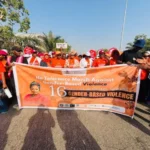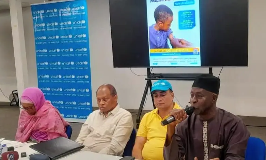The Human Cost of Vaccines Under-investment in Africa
By Oluwafunke Ishola, News Agency of Nigeria (NAN) Africa’s debt crisis is having a devastating impact on vaccination efforts, leaving millions of people vulnerable to preventable diseases. With debt-to-GDP ratios exceeding 65 per cent across sub-Saharan Africa, governments are struggling to balance debt servicing with essential health spending, including vaccinationContinue Reading















